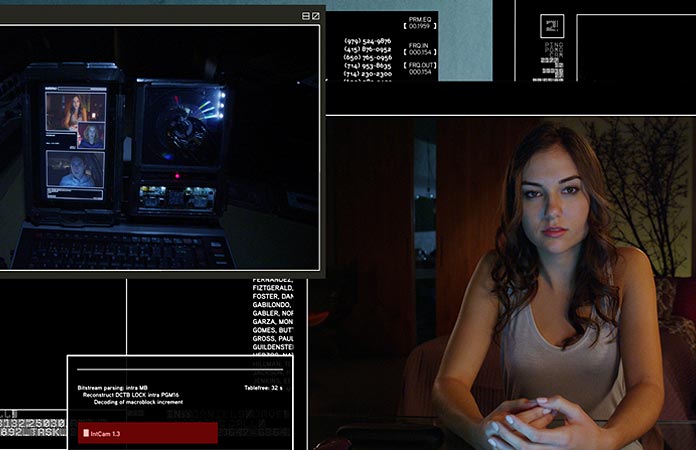TAD Film Fest Review: Open Windows
Published on October 25th, 2014 in: Film Festivals, Movie Reviews, Movies, Reviews |Even though I’ve never seen Nacho Vigalondo’s Timecrimes, I’d heard enough good things about it to interest me in Open Windows. The premise was intriguing on its own: the story of an actress, a murderous stalker, and an unwitting voyeur all told through computer screens. The cast was also a draw: Elijah Wood and Sasha Grey. Unfortunately, Open Windows is a huge disappointment.
With so much potential, it’s important not to dismiss the film outright and instead discuss how it could have been better, because ambitious movies are a good thing. It’s been suggested that the high concept premise of Open Windows flirts with transmedia, but a more realistic perspective is that it’s a movie that hopes to replicate the way so many of us live our daily lives: looking at a variety of screens for most of the time we are awake. But the film falters when it tries to take on too many things; if anything, Open Windows is too ambitious.
What makes movies like Rear Window and the more recent Compliance (which also depicts ordinary people manipulated into doing horrible things) work so well is their simplicity. The core of the narrative in Open Windows is convoluted by the appearance of too many people who aren’t what they seem. While this speaks directly to the dangers of online anonymity, there are simply too many twists presented to keep the focus on the real threat at hand: that someone wants to harm actress Jill Goddard.
The elaborate high tech scheming in Open Windows gets a bit heady at times; the 3D model sensor cameras are a neat trick but one of the more unbelievable scenarios in a movie crammed with unbelievable scenarios, and comes across feeling more like that scene in Disclosure where Michael Douglas must escape Demi Moore’s virtual reality security system. (If that reference doesn’t work for you, try any particularly corny episode of Law & Order: SVU that deals with online anything.)
That said, the elaborate hijinks that ensue during the course of the film would be a lot easier to digest if there weren’t so much exposition explaining to the viewer how elaborate everything is. It would be far more satisfying to struggle to keep up with each new technological layer than to be insulted when a character describes what we’ve just seen (which happens A LOT).
In a movie that requires a huge amount of suspension of disbelief, some believability would have helped ground it in reality. But from the beginning of Open Windows, the audience is tasked with quite a lot. Sure, your elderly relatives might not know the dangers of clicking on unknown links, but certainly someone as computer savvy as Elijah Wood’s Nick Chambers certainly would. It seems that Vigalondo wanted audiences to be swept up in the anxiety over each new threat that is presented without questioning whether or not such a thing is actually possible, and at times, that does happen, but not frequently enough to maintain the illusion.
There are more layers in Open Windows than just cyber-terrorism, like celebrity-obsessed culture and voyeurism, and a commentary on the self-promotion of those very celebrities, but it all gets lost in the influx of over-the-top technological scheming. It’s a pity because Open Windows could have been a genuinely suspenseful, modern thriller, but instead it’s just a mess.
Open Windows screened at Toronto After Dark on October 20. Cinedigm has picked up the film for US distribution but no release dates have been announced.

Time limit is exhausted. Please reload the CAPTCHA.